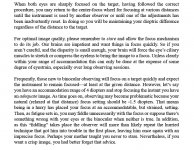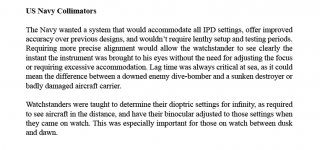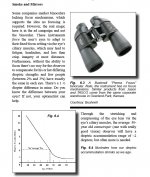You realize, of course, if I tell you this, I’m gonna hafta killya! That’s okay, though, we have a profusion of Brits, anyway.
— I think the attachments will explain much of what you want to know.
— Suppose you’re looking at a killdeer at the edge of your yard and then go to the pterodactyl a half mile away. You will probably note that your focus had to change quite a bit and that the numerals are as useful as a steering wheel on a stone.
— Many people think those diopter settings are supreme and, because of your prescription, that’s what their bino should be set to ... wrong! Those settings change with distance—and several other factors—and unless you’re buying into all that “autofocus” crap, you need to rely on the actual focus, regardless of the numerals.
Finally, I’m too tired to killya myself. How about I send Guido and the boys over around 4:00 p.m., tomorrow. Will that work for you? :cat:
Bill








